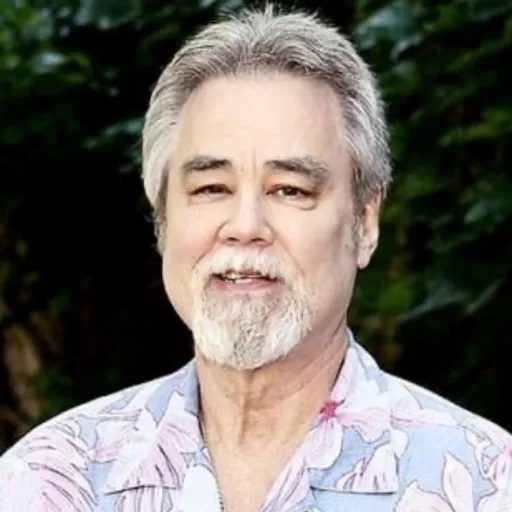
Understanding the “I Don’t Know What to Do” Feeling
Feeling lost can manifest in different ways. You might experience a lack of motivation, difficulty making decisions, or a sense of emptiness. Perhaps you question your career path, your relationships, or your overall life choices. These feelings can be accompanied by anxiety and stress, or even depression. It’s crucial to acknowledge and validate these emotions. They are a signal that something needs attention.
It’s important to remember you are not alone in this. Many people experience periods of uncertainty and self-doubt. These feelings are often triggered by significant life changes, such as graduating from college, changing careers, relationship transitions, or the loss of a loved one. However, even without a specific trigger, it’s possible to feel lost and unsure of your path.
1. Exploring Your Values and Interests
One of the first steps in finding direction is to explore your values and interests. What truly matters to you? What activities bring you joy and fulfillment? Take some time for self-reflection. Consider what you’re passionate about, what you’re good at, and what kind of impact you want to make in the world.
This exploration may involve trying new things. Experiment with different hobbies, volunteer opportunities, or classes. Don’t be afraid to step outside of your comfort zone. You might be surprised by what you discover about yourself. Talking with a therapist can provide valuable insights and help you identify your core values.
2. Setting Realistic Goals
Once you have a better understanding of your values and interests, you can start setting realistic goals. These goals should be specific, measurable, achievable, relevant, and time-bound (SMART). Start with small, manageable steps. As you achieve these smaller goals, you’ll build momentum and confidence to tackle larger ones.
It’s important to be patient with yourself throughout this process. Finding your purpose and direction takes time. There will be setbacks and challenges along the way. Don’t get discouraged. View these challenges as opportunities for growth and learning.
3. The Importance of Self-Care
Taking care of your physical and mental health is essential when you’re feeling lost. Make sure you’re getting enough sleep, eating nutritious foods, and engaging in regular exercise. Practice mindfulness or meditation to reduce stress and improve your overall well-being.
Self-care also includes setting boundaries and saying “no” to things that drain your energy. Surround yourself with supportive people who encourage you and believe in you. Prioritizing your well-being will give you the strength and clarity you need to navigate this journey.
4. Building a Support System
Having a strong support system is crucial. Talk to trusted friends, family members, or a therapist about how you’re feeling. Sharing your struggles can help you feel less alone and provide you with valuable perspective. A therapist can offer professional guidance and support as you explore your options and make decisions. If you’re experiencing feelings of inadequacy
Don’t hesitate to reach out for help. Asking for support is a sign of strength, not weakness. Integrative Family Counseling offers a safe and supportive environment for you to explore your feelings and find your path.
5. Overcoming Fear and Self-Doubt
Fear and self-doubt are common obstacles when you’re feeling lost. You might be afraid of making the wrong choice or failing to achieve your goals. It’s important to challenge these negative thoughts and replace them with more positive and empowering ones. Learning to let go of guilt
Remember that everyone experiences setbacks. It’s how you respond to those setbacks that matters. View failures as learning opportunities. Don’t let fear hold you back from pursuing your dreams.
Find A Therapist That Specializes In Navigating Uncertainty
Our therapists at Integrative Family Counseling understand the challenges of feeling lost and without direction. They provide compassionate support and evidence-based techniques to help you clarify your goals, explore your options, and create a fulfilling life path.

Kenneth Miyake
My approach has always been what Carl Rogers called the power of the "therapeutic relationship", which includes: unconditional positive regard, compassion, genuineness, empathy, and congruency. We help to empower the client by encouraging them to find their own solutions, which always lie within them.
View Kenneth's Profile
Joseph Spagnola III
With over 10 years of experience in healthcare and psychiatry, Joe is skilled in outpatient, evidence-based treatment of the following conditions, among many others.
View Joseph's Profile
Muhammad Noman Ahmed
Muhammad Noman Ahmed is a dedicated mental health therapist with a passion for helping individuals navigate life's challenges. Having transitioned from the corporate world to pursue his calling, his mission is to provide compassionate and effective therapeutic support to individuals, couples, families, and the LGBTQ community.
View Muhammad's Profile
Saad Khan
My approach to treatment is transparent, specific, time based, and derived from the most recent research. I use simple and clear language during our meeting.
View Saad's Profile
Sandra Villwock
My approach to therapy uses a variety of techniques and modalities to individualize treatment to each client's unique needs. Whether it's supportive therapy, mindfulness-based therapy or other forms of psychotherapy, I work collaboratively with each client to develop a plan that will help achieve his or her goals and be their best self.
View Sandra's ProfileEmbracing the Journey
Finding your purpose is a lifelong journey, not a destination. There will be times when you feel lost and unsure. Embrace these moments as opportunities for growth and self-discovery. Be open to new experiences and be willing to adapt your course as you learn and grow.
Trust yourself and your intuition. You have the answers within you. With self-reflection, exploration, and support, you can find direction and create a fulfilling life.
Insurance Coverage Made Simple
We accept most major insurance plans and offer low self-pay rates to ensure quality care is accessible to everyone. Your well-being is our priority, and we're here to help regardless of your financial situation.
FAQ: Common Questions About Feeling Lost and Directionless
What are common signs of feeling lost or directionless?
Can therapy help if I don't know what to do in my life?
How can I start finding my purpose?
What if I'm afraid of making the wrong choice?
How do I deal with the pressure to have it all figured out?
What role do relationships play in finding direction?
How can I improve my self-esteem while feeling lost?
Is it normal to feel lost at different stages of life?
Related Articles

Driving Anxiety is Ruining My Life: Find Solutions and Support
Driving anxiety can disrupt your daily life, find effective strategies and support to manage and overcome this issue.

How to Know What Your Friends Think of You: Reading Nonverbal Cues
Discover how to understand your friends' true feelings. Learn how to gauge their opinions, improve communication, and build stronger friendships.

Best Jobs for People with Anxiety: Work That Fits Your Needs
Explore the best jobs for people with anxiety, including careers that provide a supportive environment, flexible hours, and low-stress conditions to help manage anxiety and improve work-life balance.

Why Do I Hate Being Called a Good Person? Self-Awareness and Acceptance
Explore the complex emotions behind disliking the "good person" label. Understand the pressures, expectations, and internal conflicts it can create.



